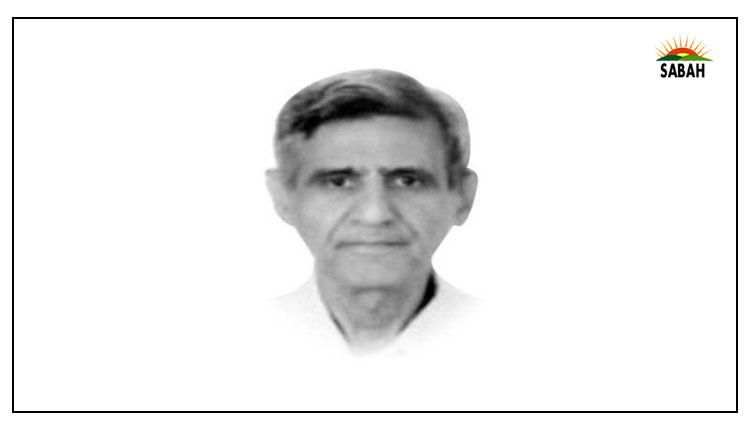Pakistan’s judiciary: a new era… Haroon Rashid Siddiqi
Pakistans political landscape is undergoing a tremendous change after more than seventy-five years of existence. For the first time in the countrys tumultuous history, the Supreme Court has declined to serve as a subordinate or facilitator to Pakistans powerful establishment. Chief Justice Umer Ata Bandial has demonstrated considerable character strength by defending the Constitution despite the severe consequences that have already shaken the judiciarys foundation. The judges chambers and courtrooms are feeling the heat.
The judicial systems symbolic scale of justice and robes of authority have been tarnished and disparaged by an alliance of all the status quo parties in the PDM who, some believe, are battling for their survival. We should, at the very least, commend the Chief Justice for dismissing Imran Khan when he unjustly and obstinately resisted the no-confidence motion against him. The Chief Justice now supports the constitutionally mandated elections in Punjab and KP. This is being politically manipulated and depicted as an alliance with Imran Khan and PTI.
To many, it seems that the regrettable and deplorable attacks on the military facilities occurred when PTI supporters got unrestricted access. Its believed that unidentified individuals were tasked with inciting the crowd to vandalise and set the Corps Commanders house on fire. The real truth will likely remain a part of the vast conspiracy theory graveyard. Regardless of the truth, the PDM benefits significantly as a deep rift of animosity and mistrust between the security establishment and PTI leader Imran Khan and his party is clearly widening.
Although the vandalism and burning of the Corps Commanders house were equally reprehensible, the government has conveniently highlighted the Jinnah House narrative to harvest substantial political gains. Such manipulations are self-evident, at least. This time, the government cleverly targeted the Achilles heel to extend their unpopular rule by avoiding elections on superficial grounds. Imran Khan has been left struggling in the quagmire of mounting allegations. Its a tall order for him to continuously evade legal repercussions, especially when his street power has been neutralised after multiple failed attempts to rally nationwide protests.
Imran Khans fate is dangling on the Chief Justice who himself is in a tough spot, as Supreme Courts rulings are being openly violated and mocked. The recent sit-in by JUI-F chief in front of the Supreme Court, encouraged by all coalition partners, has undermined the Chief Justices capacity to perform his judicial duties. A verse by Ghalib is particularly fitting in this context: Hui jin sai tawaqqo khastagi ki daad panay ki; Woh hum sai bhi ziyada khasta e teg e sitam niklay; meaning those from whom I expected sympathy for my frailty, turned out to be even more wounded by the sword of oppression.
Imran Khans naive and whimsical decision to submit mass resignations of his partys parliamentarians has emboldened the truncated National Assembly. All assembly members are venting their frustration and anger, passing absurd laws after having the anti-corruption bodys yoke removed from their necks, and relishing in acquittals from clear-cut corruption cases. They have become so defiant against the Chief Justice that it may serve their political purpose if he takes action to end their rule.
Moreover, the establishment is fully aware that the ruling parties, now armed with obstinacy, will also target them if given a free hand to dismantle PTI, oust the Chief Justice, and dictate from the constitutions womb the National Assembly. Every member of this institution is currently playing a dominant role. The real issues of the country have been postponed for another day. Its important to remind all stakeholders that were all aboard a sinking ship, so what is the struggle really about?
Courtesy The Express Tribune, May 23rd, 2023.












